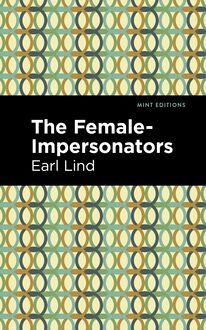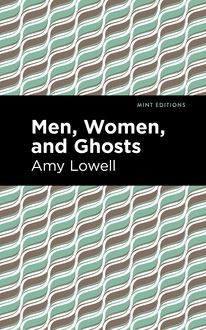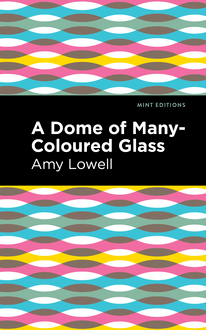-
 Univers
Univers
-
 Ebooks
Ebooks
-
 Livres audio
Livres audio
-
 Presse
Presse
-
 Podcasts
Podcasts
-
 BD
BD
-
 Documents
Documents
-
- Cours
- Révisions
- Ressources pédagogiques
- Sciences de l’éducation
- Manuels scolaires
- Langues
- Travaux de classe
- Annales de BEP
- Etudes supérieures
- Maternelle et primaire
- Fiches de lecture
- Orientation scolaire
- Méthodologie
- Corrigés de devoir
- Annales d’examens et concours
- Annales du bac
- Annales du brevet
- Rapports de stage
La lecture à portée de main

Vous pourrez modifier la taille du texte de cet ouvrage
Découvre YouScribe en t'inscrivant gratuitement
Je m'inscrisDécouvre YouScribe en t'inscrivant gratuitement
Je m'inscrisEn savoir plus
Vous pourrez modifier la taille du texte de cet ouvrage
En savoir plus

Description
Joseph and His Friend: A Story of Pennsylvania (1870) is a novel by Bayard Taylor. Written toward the end of Taylor’s career as a prominent travel writer and poet, Joseph and His Friend: A Story of Pennsylvania has been recognized by scholars as the first gay novel in American literary history. “When they were seated side by side, and Joseph leaned his head back on the supporting arm, while the train moved away with them, he felt that a new power, a new support, had come to his life. The face upon which he looked was no longer strange; the hand which had rested on his heart was warm with kindred blood. Involuntarily he extended his own; it was taken and held, and the dark gray, courageous eyes turned to him with a silent assurance which he felt needed no words.” During a train derailment, Joseph Aster sustains minor injuries and his helped by a kind stranger named Philip Held. Regaining his senses, Joseph feels an unspeakably strong spiritual and physical connection with his savior. As they become inseparable friends, Joseph’s home life begins to suffer as his wife Julia asserts control over their finances, often to the benefit of her wealthy family. When tragedy strikes, Joseph has no one to turn to but Philip, a man he has grown to love more than anything in the world. With a beautifully designed cover and professionally typeset manuscript, this edition of Bayard Taylor’s Joseph and His Friend: A Story of Pennsylvania is a classic work of queer literature reimagined for modern readers.
Sujets
Informations
| Publié par | Mint Editions |
| Date de parution | 23 avril 2021 |
| Nombre de lectures | 0 |
| EAN13 | 9781513295503 |
| Langue | English |
| Poids de l'ouvrage | 2 Mo |
Informations légales : prix de location à la page 0,0500€. Cette information est donnée uniquement à titre indicatif conformément à la législation en vigueur.
Extrait
Joseph and His Friend
A Story of Pennsylvania
Bayard Taylor
Joseph and His Friend: A Story of Pennsylvania was first published in 1870.
This edition published by Mint Editions 2021.
ISBN 9781513295350 | E-ISBN 9781513295503
Published by Mint Editions®
minteditionbooks .com
Publishing Director: Jennifer Newens
Design & Production: Rachel Lopez Metzger
Project Manager: Micaela Clark
Typesetting: Westchester Publishing Services
The better angel is a man right fair;
The worser spirit a woman colour’d ill.
— S HAKSPEARE , Sonnets
C ONTENTS I. J OSEPH II. M ISS B LESSING III. T HE P LACE AND P EOPLE IV. M ISS B LESSING CALLS ON R ACHEL M ILLER V. E LWOOD ’ S E VENING , AND J OSEPH ’ S VI. I N THE G ARDEN VII. T HE B LESSING F AMILY VIII. A C ONSULTATION IX. J OSEPH AND HIS F RIEND X. A PPROACHING F ATE XI. A C ITY W EDDING XII. C LOUDS XIII. P RESENTIMENTS XIV. T HE A MARANTH XV. A D INNER P ARTY XVI. J OSEPH ’ S T ROUBLE , AND P HILIP ’ S XVII. A S TORM XVIII. O N THE R AILROAD T RACK XIX. T HE “W HARF - RAT ” XX. A C RISIS XXI. U NDER THE W ATER XXII. K ANUCK XXIII. J ULIA ’ S E XPERIMENT XXIV. F ATE XXV. T HE M OURNERS XXVI. T HE A CCUSATION XXVII. T HE L ABELS XXVIII. T HE T RIAL XXIX. N EW E VIDENCE XXX. M R . B LESSING ’ S T ESTIMONY XXXI. B EGINNING ANOTHER L IFE XXXII. L ETTERS XXXIII. A LL ARE H APPY
To those who prefer quiet pictures of life to startling incidents, the attempt to illustrate the development of character to the mysteries of an elaborate plot, and the presentation of men and women in their mixed strength and weakness to the painting of wholly virtuous ideals and wholly evil examples: who are as interested in seeing moral and intellectual forces at work in a simple country community as on a more conspicuous plane of human action: who believe in the truth and tenderness of man’s love for man, as of man’s love for woman: who recognize the trouble which confused ideas of life and the lack of high and intelligent culture bring upon a great portion of our country population,—to all such, no explanation of this volume is necessary. Others will not read it.
I
J OSEPH
Rachel Miller was not a little surprised when her nephew Joseph came to the supper-table, not from the direction of the barn and through the kitchen, as usual, but from the back room up stairs, where he slept. His work-day dress had disappeared; he wore his best Sunday suit, put on with unusual care, and there were faint pomatum odors in the air when he sat down to the table.
Her face said—and she knew it—as plain as any words, “What in the world does this mean?” Joseph, she saw, endeavored to look as though coming down to supper in that costume were his usual habit; so she poured out the tea in silence. Her silence, however, was eloquent; a hundred interrogation-marks would not have expressed its import; and Dennis, the hired man, who sat on the other side of the table, experienced very much the same apprehension of something forthcoming, as when he had killed her favorite speckled hen by mistake.
Before the meal was over, the tension between Joseph and his aunt had so increased by reason of their mutual silence, that it was very awkward and oppressive to both; yet neither knew how to break it easily. There is always a great deal of unnecessary reticence in the intercourse of country people, and in the case of these two it had been specially strengthened by the want of every relationship except that of blood. They were quite ignorant of the fence, the easy thrust and parry of society, where talk becomes an art; silence or the bluntest utterance were their alternatives, and now the one had neutralized the other. Both felt this, and Dennis, in his dull way, felt it too. Although not a party concerned, he was uncomfortable, yet also internally conscious of a desire to laugh.
The resolution of the crisis, however, came by his aid. When the meal was finished and Joseph betook himself to the window, awkwardly drumming upon the pane, while his aunt gathered the plates and cups together, delaying to remove them as was her wont, Dennis said, with his hand on the door-knob: “Shall I saddle the horse right off?”
“I guess so,” Joseph answered, after a moment’s hesitation.
Rachel paused, with the two silver spoons in her hand. Joseph was still drumming upon the window, but with very irregular taps. The door closed upon Dennis.
“Well,” said she, with singular calmness, “a body is not bound to dress particularly fine for watching, though I would as soon show him that much respect, if need be, as anybody else. Don’t forget to ask Maria if there’s anything I can do for her.”
Joseph turned around with a start, a most innocent surprise on his face.
“Why, aunt, what are you talking about?”
“You are not going to Warne’s to watch? They have nearer neighbors, to be sure, but when a man dies, everybody is free to offer their services. He was always strong in the faith.”
Joseph knew that he was caught, without suspecting her man œ uvre. A brighter color ran over his face, up to the roots of his hair. “Why, no!” he exclaimed; “I am going to Warriner’s to spend the evening. There’s to be a little company there,—a neighborly gathering. I believe it’s been talked of this long while, but I was only invited today. I saw Bob, in the road-field.”
Rachel endeavored to conceal from her nephew’s eye the immediate impression of his words. A constrained smile passed over her face, and was instantly followed by a cheerful relief in his.
“Isn’t it rather a strange time of year for evening parties?” she then asked, with a touch of severity in her voice.
“They meant to have it in cherry-time, Bob said, when Anna’s visitor had come from town.”
“That, indeed! I see!” Rachel exclaimed. “It’s to be a sort of celebration for—what’s-her-name? Blessing, I know,—but the other? Anna Warriner was there last Christmas, and I don’t suppose the high notions are out of her head yet. Well, I hope it’ll be some time before they take root here! Peace and quiet, peace and quiet, that’s been the token of the neighborhood; but town ways are the reverse.”
“All the young people are going,” Joseph mildly suggested, “and so—”
“O, I don’t say you shouldn’t go, this time,” Rachel interrupted him; “for you ought to be able to judge for yourself what’s fit and proper, and what is not. I should be sorry, to be sure, to see you doing anything and going anywhere that would make your mother uneasy if she were living now. It’s so hard to be conscientious, and to mind a body’s bounden duty, without seeming to interfere.”
She heaved a deep sigh, and just touched the corner of her apron to her eyes. The mention of his mother always softened Joseph, and in his earnest desire to live so that his life might be such as to give her joy if she could share it, a film of doubt spread itself over the smooth, pure surface of his mind. A vague consciousness of his inability to express himself clearly upon the question without seeming to slight her memory affected his thoughts.
“But, remember, Aunt Rachel,” he said, at last, “I was not old enough, then, to go into society. She surely meant that I should have some independence, when the time came. I am doing no more than all the young men of the neighborhood.”
“Ah, yes, I know,” she replied, in a melancholy tone; “but they’ve got used to it by degrees, and mostly in their own homes, and with sisters to caution them; whereas you’re younger according to your years, and innocent of the ways and wiles of men, and—and girls.”
Joseph painfully felt that this last assertion was true. Suppressing the impulse to exclaim, “Why am I younger ‘according to my years?’ why am I so much more ‘innocent’—which is, ignorant—than others?” he blundered out, with a little display of temper, “Well, how am I ever to learn?”
“By patience, and taking care of yourself. There’s always safety in waiting. I don’t mean you shouldn’t go this evening, since you’ve promised it, and made yourself smart. But, mark my words, this is only the beginning. The season makes no difference; townspeople never seem to know that there’s such things as hay-harvest and corn to be worked. They come out for merry-makings in the busy time, and want us country folks to give up everything for their pleasure. The tired plough-horses must be geared up for ’em, and the cows wait an hour or two longer to be milked while they’re driving around; and the chickens killed half-grown, and the washing and baking put off when it comes in their way. They’re mighty nice and friendly while it lasts; but go back to ’em in town, six months afterwards, and see whether they’ll so much as ask you to take a meal’s victuals!”
Joseph began to laugh. “It is not likely,” he said, “that I shall ever go to the Blessings for a meal, or that this Miss Julia—as they call her—will ever interfere with our harvesting or milking.”
“The airs they put on!” Rachel continued. “She’ll very likely think that she’s doing you a favor by so much as speaking to you. When the Bishops had boarders, two years ago, one of ’em said,—Maria told me with her own mouth,—‘Why don’t all the farmers follow your example? It would be so refining for them!’ They may be very well in their place, but, for my part, I should like them to stay there.”
“There comes the horse,” said Joseph. “I must be on the way. I expect to meet Elwood Withers at the lane-end. But—about waiting, Aunt—you hardly need—”
“O, yes, I’ll wait for you, of course. Ten o’clock is not so very late for me.”
“It might be a little after,” he suggested.
“Not much, I hope; but if it should be daybreak, wait I will! Your mother couldn’t expect less of me.”
When Joseph whirled into the saddle, the thought of his aunt, grimly waiting for his return, was already perched like an imp on the crupper, and clung to his sides with claws of steel. She, looking through the window, also felt that it was so; and, much relieved, went back to her household duties
Attention
En entrant sur cette page, vous certifiez :
- 1. avoir atteint l'âge légal de majorité de votre pays de résidence.
- 2. avoir pris connaissance du caractère érotique de ce document.
- 3. vous engager à ne pas diffuser le contenu de ce document.
- 4. consulter ce document à titre purement personnel en n'impliquant aucune société ou organisme d'État.
- 5. vous engager à mettre en oeuvre tous les moyens existants à ce jour pour empêcher n'importe quel mineur d'accéder à ce document.
- 6. déclarer n'être choqué(e) par aucun type de sexualité.
YouScribe ne pourra pas être tenu responsable en cas de non-respect des points précédemment énumérés. Bonne lecture !
-
 Univers
Univers
-
 Ebooks
Ebooks
-
 Livres audio
Livres audio
-
 Presse
Presse
-
 Podcasts
Podcasts
-
 BD
BD
-
 Documents
Documents
-
Jeunesse
-
Littérature
-
Ressources professionnelles
-
Santé et bien-être
-
Savoirs
-
Education
-
Loisirs et hobbies
-
Art, musique et cinéma
-
Actualité et débat de société
-
Jeunesse
-
Littérature
-
Ressources professionnelles
-
Santé et bien-être
-
Savoirs
-
Education
-
Loisirs et hobbies
-
Art, musique et cinéma
-
Actualité et débat de société
-
Actualités
-
Lifestyle
-
Presse jeunesse
-
Presse professionnelle
-
Pratique
-
Presse sportive
-
Presse internationale
-
Culture & Médias
-
Action et Aventures
-
Science-fiction et Fantasy
-
Société
-
Jeunesse
-
Littérature
-
Ressources professionnelles
-
Santé et bien-être
-
Savoirs
-
Education
-
Loisirs et hobbies
-
Art, musique et cinéma
-
Actualité et débat de société
- Cours
- Révisions
- Ressources pédagogiques
- Sciences de l’éducation
- Manuels scolaires
- Langues
- Travaux de classe
- Annales de BEP
- Etudes supérieures
- Maternelle et primaire
- Fiches de lecture
- Orientation scolaire
- Méthodologie
- Corrigés de devoir
- Annales d’examens et concours
- Annales du bac
- Annales du brevet
- Rapports de stage











